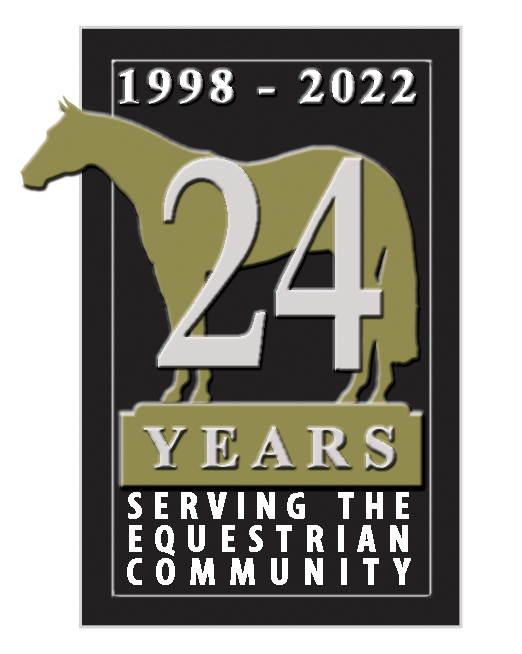No Scope? No Problem.
September 14, 2009No scope? No problem. An experienced veterinarian may be able to diagnose equine gastric ulcers even without equipment.
Equine gastric ulcers can be a problem for horses in nearly every breed and discipline.1 However, for many veterinarians, providing a definitive diagnosis can be difficult if they lack the necessary diagnostic equipment – a three-meter endoscope that can cost between $15,000 and $30,000 to purchase.
“Many horse owners look to their veterinarian to give them a clear-cut ‘yes’ or ‘no’ answer as to whether their animals are suffering from gastric ulcers,” says April Knudson, DVM, manager, Merial Large Animal Veterinary Services. “However, the only way to be sure a horse has ulcers is to perform gastric endoscopy. Unfortunately, because the equipment is expensive, many veterinarians simply are unable to offer this service.”
All types of horses are at risk for gastric ulcers, from upper-level competitors to the everyday trail horse – making the condition top of mind anytime a veterinarian sees signs, such as decreased appetite, recurrent colic, poor body condition and poor performance.2
“Because the signs of gastric ulcers are well-documented, many veterinarians provide presumptive diagnosis by treating horses they suspect have ulcers,” Dr. Knudson says. “Veterinarians can begin treatment and watch for the horse’s behavior, body condition, appetite or recurrent colic to improve.2 If the horse’s clinical signs improve, it may be because the gastric ulcers are healing.”
Stephanie White, DVM, of Altoona, Iowa, regularly sees horses with signs of gastric ulcers. Rather than asking her clients to travel several miles to Iowa State University for gastric endoscopy, Dr. White recommends her clients begin a treatment program to see if the horse improves.
“To get them scoped, they have to be off feed, they have to be sedated and then there’s the cost for scoping and hauling them,” Dr. White says. “Usually, people would just as soon spend that money on using omeprazole to see how the horse responds.”
Dr. White recommends GASTROGARDR (omeprazole) to her clients to help heal gastric ulcers. She has seen several other people start with a variety of other products, but GASTROGARD is the only product she says she trusts to consistently work. Plus, it’s the only FDA-approved treatment for gastric ulcers. Ulcer treatments that are proven to be consistent can help veterinarians evaluate if gastric ulcers are the culprit or if other ailments should be considered.
“It’s frustrating to see people using things you know aren’t effective against gastric ulcers,” Dr. White says. “There is a lot of education that goes into it, and we’ve come a long way. People are a lot more aware of the fact that ulcers are so prevalent and that GASTROGARD is the best way to treat them. People are just more aware that it is a problem.”
In a recent survey, GASTROGARD was recommended by more veterinarians than any other product for the treatment of gastric ulcers.3 One tube of GASTROGARD given orally once per day for 28 days effectively heals or reduces the severity of equine gastric ulcers. The veterinarian can evaluate improvement during the treatment period to help determine if gastric ulcers may have been present, thereby confirming the presumptive diagnosis.4 Also, horses can stay in full training during treatment with GASTROGARD.4
While there are many products that claim to treat gastric ulcers, Dr. Knudson recommends FDA-approved products that are thoroughly tested and proven effective if a presumptive diagnosis is considered.
“It’s important to look for products that are formulated to remain effective – even while being digested by the horse,” Dr. Knudson says. “In a study, medications, such as antacids, mucosal protectants, cimetidine and ranitidine, did not significantly heal gastric ulcers.5 Additionally, compounded omeprazole products can lack the consistency found in FDA-approved products.5 Relying on products that aren’t as consistent could lead to an incorrect diagnosis.
“With the information we have today, veterinarians have a reliable tool to help presumptively diagnose gastric ulcers. Although every veterinarian may not have an endoscope, the important thing to remember is that every veterinarian has a safe, FDA-approved product to help treat gastric ulcers in their practice.”
IMPORTANT SAFETY INFORMATION: The safety of GASTROGARDR (omeprazole) in pregnant or lactating mares has not been determined.
1Scoping event results for ULCERGARDR (omeprazole). Data on file at Merial. 2Andrews FM. Ulcers in the stomach and colon; diagnosis and treatment: A pain in the gut! International Veterinary Information Service. 2005. Available at: http://email.blueoxmailbox.com/c.html?rtr=on&s=aw16,18p1l,2elh,frgy,5o49,bo 5g,5bc4> http://www.ivis.org/proceedings/aaepfocus/2005/Andrews.pdf. Accessed October 20, 2008. 3Data on file (Merial marketing research). 4GASTROGARD product label. 5Orsini JA, et al. Odds of moderate or severe gastric ulceration in racehorses receiving antiulcer medications. JAVMA 2004;223(3):336-339.
RGASTROGARD is a registered trademark of the AstraZeneca Group of Companies. C2009 Merial Limited. Duluth, GA. All rights reserved. EQUIGGD909 (7/09).

